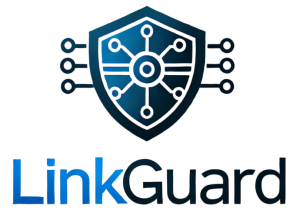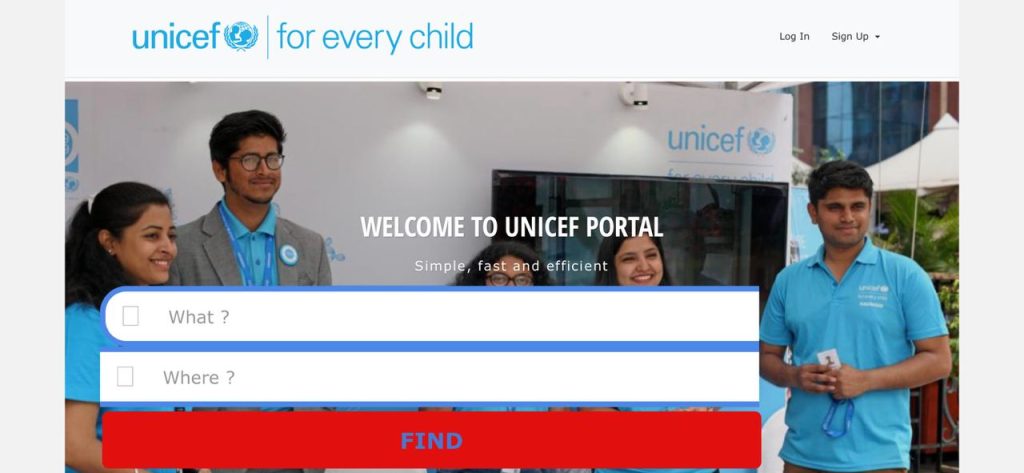Phishing scams are a prevalent form of cyberattack that exploit unsuspecting users by mimicking trusted organizations. A suspicious link, https://lnkshk.com/Unicef-ref.portal which also appears as https://unicef-jobs.get-paid.online/, claims to represent UNICEF but displays several red flags. We will analyse the steps presented when the link is clicked, to reveal its true nature and confirm if it is a phishing attempt.
Step-by-Step Analysis:
- Welcome Message Page: A legitimate UNICEF page would use a verified URL (e.g., unicef.org or a subdomain).The link provided, https://lnkshk.com/Unicef-ref.portal, does not match UNICEF’s official domain, which is already a red flag.
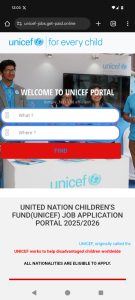
- Application Form: Once clicked, the user is directed to a website that looks remarkably similar to UNICEF’s official page, with professional design elements and logos but badly written grammar.However, this page is intended to capture personal data, asking users to complete forms with private information.
Legitimate organizations’ websites will always match their official domain and have all texts written professionally. Always verify the full URL before entering personal details.
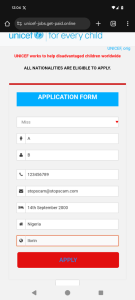
3. “Continue” Page: The scam builds a false sense of urgency, urging users to take quick action. This pressure tactic is commonly used to prevent individuals from thinking critically or checking the legitimacy of the offer. Note that authentic promotions and offers provide clear, well-explained terms and never push for immediate action.
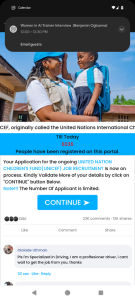
- Sharing with Groups/People: The page prompts users to share the link with their friends or social media groups, under the guise of spreading a special offer or reward. This tactic exploits trust, as people are more likely to click on links from friends or groups. It also creates a sense of urgency, pressuring victims to act quickly. Legitimate organizations never ever demand link sharing as a prerequisite for participation.
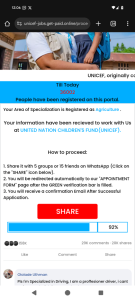
5. Capture Information (Age, Gender, Network Provider): The phishing page requests personal details such as age, gender, and network provider, under the pretense of processing a reward. This step is designed to gather sensitive information that can be misused for identity theft, targeted scams, or fraudulent activities. Legitimate organizations don’t ask for such personal details through random promotions. Be wary of any site requesting unnecessary personal information.

6. Network Carrier “Gifts”: The page falsely claims that your network provider has gifted a certain amount of money, creating excitement and trust. This ploy distracts users from questioning the legitimacy of the offer while luring them deeper into the process.Network providers communicate official rewards through verified channels, not through random promotions or third-party links. Always verify such claims directly with your carrier.

- Subscription Request: The scam concludes by directing users to subscribe to a serviceLegitimate organizations never require unsolicited subscriptions as part of promotions. Always avoid signing up for unknown services through unverified links.
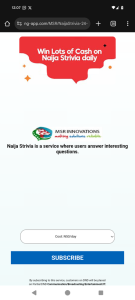
Conclusion: A Clear Phishing Scam
The analysis of the links, https://lnkshk.com/Unicef-ref.portal and https://unicef-jobs.get-paid.online, reveals a carefully crafted phishing scheme that mimics the trusted identity of UNICEF. From the use of an unverified domain to the collection of personal details and misleading subscription requests, every step is designed to exploit unsuspecting users.
Phishing scams like these rely on urgency, trust, and social manipulation to deceive victims. Legitimate organizations such as UNICEF always use their official domains for communication, do not request unnecessary personal details, and never pressure users into sharing links or subscribing to questionable services.
Stay vigilant online. Always verify URLs, be cautious with unsolicited links, and never provide personal information without confirming the legitimacy of a website. By being informed and cautious, you can protect yourself from falling victim to such cyberattacks.
